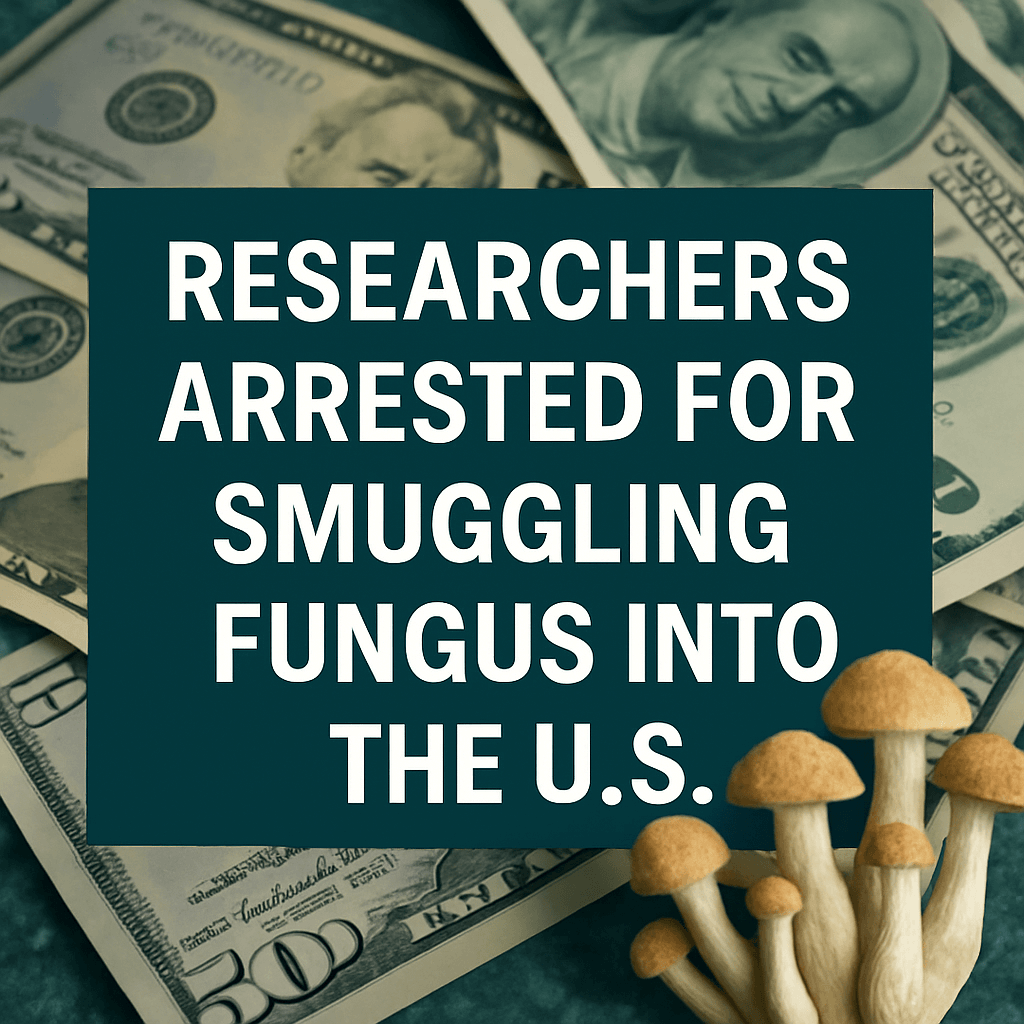Researchers Arrested for Smuggling Fungus into the U.S.

In a significant breach of agricultural biosecurity laws, two Chinese researchers were arrested at Detroit Metropolitan Airport in July 2024 while attempting to smuggle a fungus considered a biological pathogen into the United States. The couple, Zunyong Liu and Yunqing Jian, have been charged with multiple federal crimes relating to a months-long plan to introduce Fusarium graminearum, a pathogen with the potential for severe agricultural damage.
Details of the Arrest
Zunyong Liu, 34, a researcher based at Zhejiang University in Hangzhou, was caught while traveling to visit his girlfriend, Yunqing Jian, 33, who works as a postdoctoral fellow at the University of Michigan. Customs and Border Protection (CBP) agents discovered four plastic bags containing “small clumps of reddish plant material,” later confirmed to be Fusarium graminearum. The fungus can trigger devastating diseases in staple crops, including wheat, barley, oats, and maize, leading to significant economic losses.
Method of Smuggling
The samples were ingeniously concealed within a wad of crumpled tissues located in a pocket of Liu’s backpack. Alongside the samples, authorities found a piece of filter paper inscribed with markings indicating it contained diverse biological materials, as well as a note written in Mandarin. During initial questioning, Liu claimed ignorance of the samples. However, he later admitted to plans of cloning Fusarium graminearum at the University of Michigan, where Jian has access to advanced research facilities.
Further investigation uncovered digital evidence of planning, including conversations between Liu and Jian regarding customs evasion techniques. Notably, one of Liu’s devices contained an article titled “2018 Plant-Pathogen Warfare under Changing Climate Conditions,” specifically referencing Fusarium graminearum, underscoring the couple’s intent to engage in research that could classify as agroterrorism.
Risks Associated with Fusarium graminearum
Fusarium graminearum is notorious for causing a plant disease known as head blight, which can decimate crop yields and pose food security threats. The economic implications are noteworthy; head blight has been linked to billions of dollars in agricultural losses in regions where contaminated grains affect harvest quality.
Experts emphasize the dangers of introducing a foreign strain of Fusarium graminearum into the U.S. ecosystem. Gary Bergstrom, a professor of plant pathology at Cornell University, notes that while existing strains are controlled through fungicides and systemic inspections, a pathogenic variant with natural resistance to commercial fungicides could amplify crop vulnerability. This could result in serious agricultural crises, affecting food supplies and ultimately consumers.
Human Health Implications
Beyond agricultural concerns, Fusarium graminearum poses risks to human health. The toxins produced by this fungus can lead to severe poisoning, manifesting symptoms such as vomiting and liver damage. Often referred to as “vomitoxin,” the hazardous nature of these mycotoxins highlights the dual threat posed by the fungus—both in terms of food safety and agricultural integrity.
Prior Incidents of Smuggling
The investigation revealed that Liu and Jian had previously attempted to smuggle Fusarium graminearum into the U.S. Federal agents had already questioned Jian about her activities earlier in 2024. Messages uncovered through forensic analysis indicated that Jian had successfully hidden similar samples in her shoes during past trips through San Francisco International Airport.
Additionally, communication between Jian and an individual named Xia Chen detailed meticulous planning for smuggling biological samples. Jian specifically instructed Chen on how to prepare and camouflage the samples for shipping. In one instance, a parcel sent by Chen, disguised within a statistics textbook, was intercepted by CBP officers in Louisville, Kentucky, raising alarms about these ongoing schemes.
Conclusion and Institutional Response
The University of Michigan has vowed to assist law enforcement agencies and condemned the actions that threaten both national security and the integrity of research endeavors. Authorities continue their investigations into the broader implications of this case while emphasizing the importance of stringent biosecurity measures to prevent the introduction of harmful pathogens.
Expert Opinions
As this case unfolds, agricultural experts and biosecurity officials are underscoring the critical nature of monitoring biological material crossings at U.S. borders:
“Crossing international borders with potentially harmful plant pathogens is a serious matter,” said Eric Olson, a professor of wheat breeding and genetics at Michigan State University. “It highlights vulnerabilities in our agricultural biosecurity systems.”